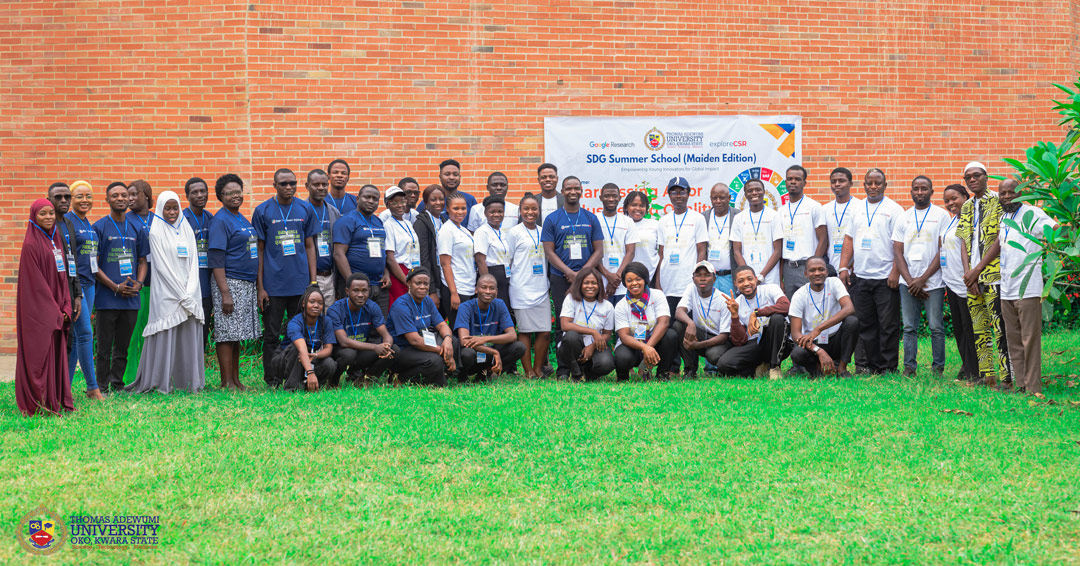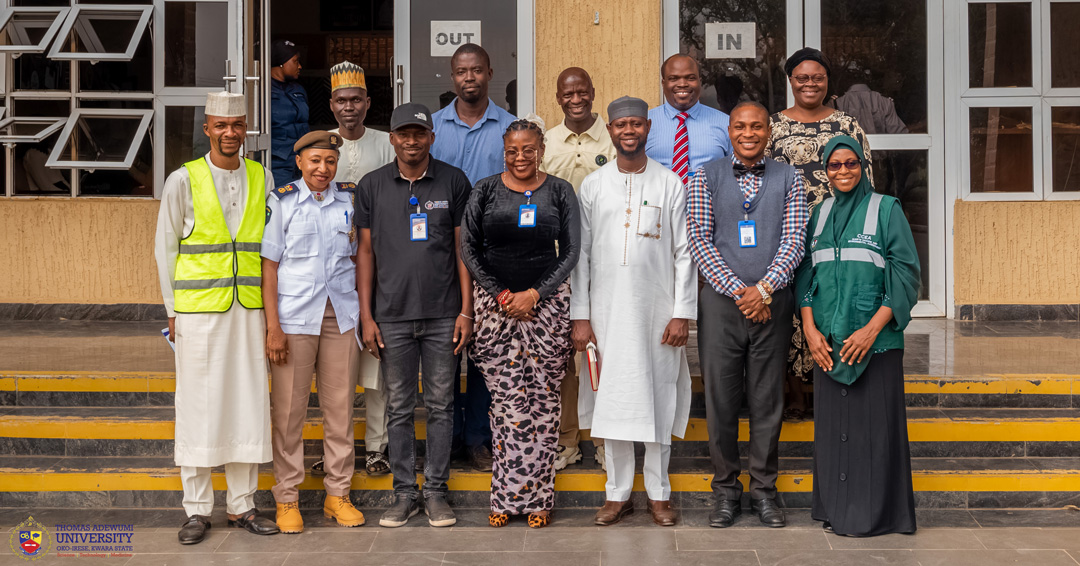Thomas Adewumi University successfully hosted the maiden edition of the SDGs Summer School from July 23rd to 25th, under the compelling theme “Harnessing AI for Inclusive and Quality Education.” The three-day event gathered AI enthusiasts, researchers, and students from universities across Nigeria, including Bowen University (Iwo), Al-Hikmah University (Ilorin), and the Federal University of Technology (Minna), among others.
The summer school, supported by Google Research and exploreCSR, was a collaborative learning platform designed to explore the intersection of Artificial Intelligence (AI) and the Sustainable Development Goals (SDGs), with a particular focus on improving education through emerging technologies.
The program commenced with the arrival, registration, and orientation of participants, who had been carefully selected for the intensive experience. The opening session featured an insightful lecture titled "Introduction to Generative AI & Fundamentals of ML, DL, and LLMs," delivered by Mr. Olajide Omojarabi, a lecturer in the Department of Mathematical & Computing Science at TAU.
Mr. Omojarabi demystified the distinctions and overlaps between Machine Learning (ML), Deep Learning (DL), and Large Language Models (LLMs). He also provided clarity on the “artificial” aspect of Artificial Intelligence and facilitated a thought-provoking discussion on controversial questions such as, “Will AI take over human jobs?” and “Will skilled professionals remain relevant in the age of AI?” The session highlighted how AI can contribute to achieving the SDGs through innovative solutions in education and beyond.
Day two featured four thematic sessions led by experts in AI ethics, education, research, and development:
-
Responsible AI in Education
Barr. Kingsley Owadara, Founder of the Pan-African Centre for AI Ethics, addressed the benefits and risks of AI in academic environments. He emphasized AI’s potential in content creation, personalized learning, and assessment, while also cautioning against challenges like academic dishonesty, privacy violations, and diminished agency. -
AI Tools in Education
Dr. Samuel Farohunbi, Director of Human Capacity Development at TAU and the host of the summer school, introduced participants to practical AI tools for teaching and learning. He shared a five-layer prompting framework for effective AI use, including: adopting a role, explaining the problem, providing examples, excluding unwanted content, and specifying output format. -
Research Methodology & Data Analysis
Dr. Kayode Odunuga, a medical doctor and AI researcher, provided a comprehensive guide to research design, data collection, and manuscript development. He emphasized the importance of problem identification and literature review in AI-driven academic research. -
Prompt Design for Learners
Mr. Umar Abdulganiyy, a robotics and ML developer, concluded the session on designing effective prompts. He outlined the four key elements of prompt design: clarity, specificity, context, and constraints.
The day concluded with the formation of seven groups for an AI Hackathon, where participants collaborated on real-world problems and began developing AI-powered solutions.
The final day showcased the creativity and collaboration of participants as the seven groups presented their AI-based solutions addressing issues such as agriculture, unemployment, cafeteria management, and so on. Three outstanding teams were awarded for their innovative presentations, and they received tokens of appreciation for their impactful contributions.
In his closing remarks, Mr. Kolawole Fisoye, the Registrar of the University, commended the participants for their active engagement and lauded Dr. Samuel Farohunbi for his leadership in organizing such an enriching event. He also extended gratitude to Google Research and Google exploreCSR for their unwavering support in making the event possible.
The maiden edition of the SDGs Summer School reinforced TAU’s commitment to leveraging science and technology to drive social transformation. Through knowledge-sharing and innovation, the university continues to cultivate future-ready leaders equipped to use AI responsibly for the betterment of society.


